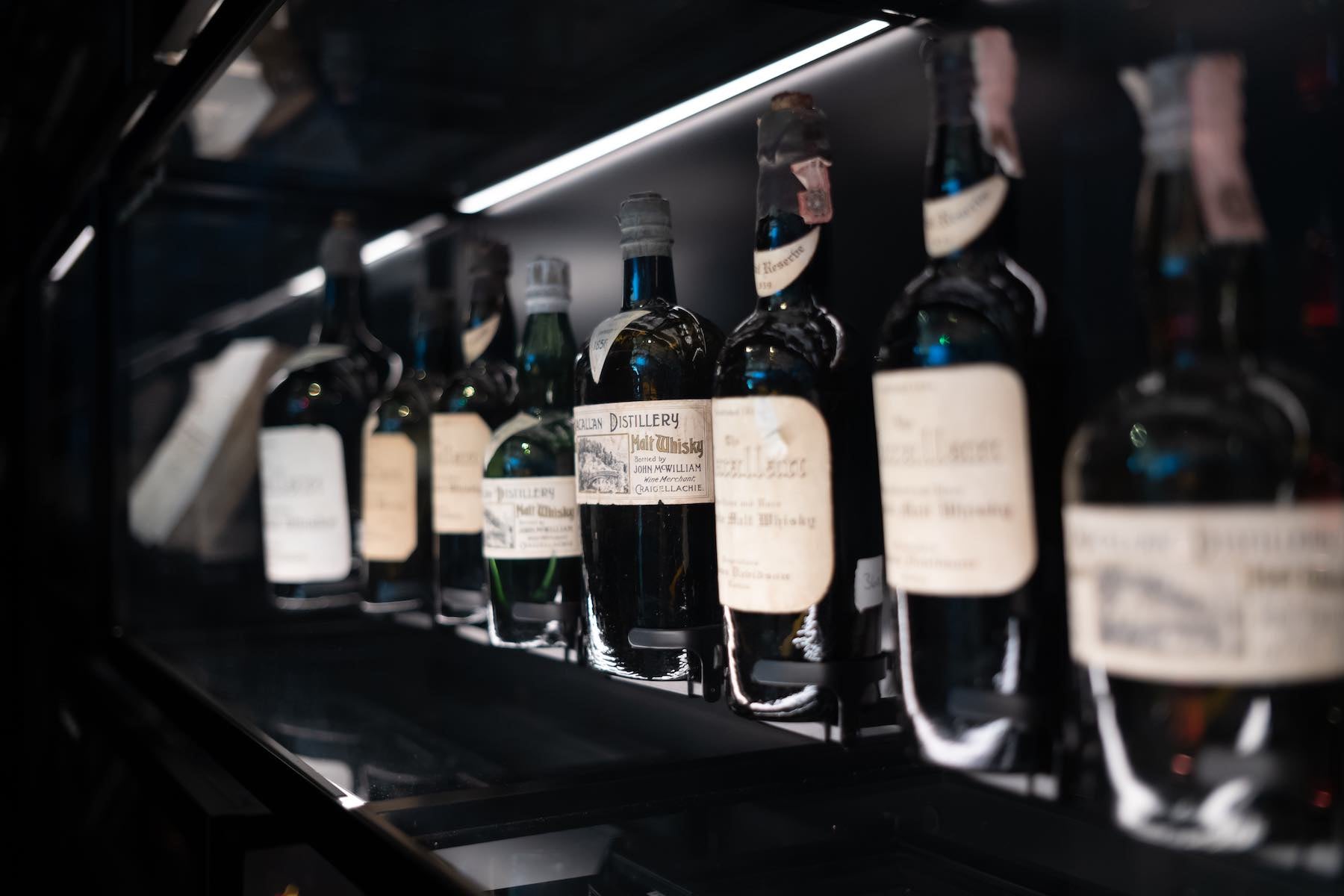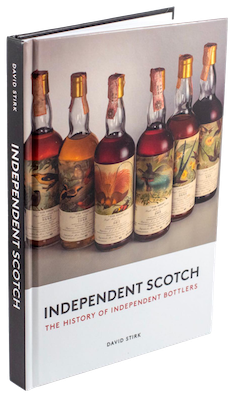
How to start a whisky collection or whiskey cellar: insider tips for beginners
In the world of spirits, whisky stands out as a fascinating category, rich in history, tradition, and flavour. Whether it's the peaty intensity of an Islay Scotch, the smooth richness of a Kentucky bourbon, or the nuanced subtlety of a Japanese single malt, each whisky tells a unique story that's waiting to be discovered.
For many, this discovery leads to a lifelong passion and the desire to start a whisky collection. Starting a whisky collection led me, for example, to founding TopWhiskies!
However, entering the world of whisky collecting can seem daunting. With so many types, regions, and brands to explore, where does one begin? This guide is designed to answer that question and many more. By following some of these suggestions, I hope you'll be well on your way to building a whisky collection in 2023. One that's not only an investment but also, importantly, a source of endless enjoyment and learning.
Should I focus on a specific type or region of whisky?
When starting a whisky collection, you may want to consider focusing on a specific type or region of whisky. This can help narrow your choices and deepen your understanding of that particular style or region. For example, you could concentrate on single malt Scotch whiskies, which are known for their diversity in flavours depending on the region, or American bourbons with their unique sweet profile due to the corn content and ageing process.
How much should I expect to invest when starting a whisky collection?
The cost of starting a whisky collection can vary widely, depending on your personal tastes and the types of whisky you wish to collect. You could start with less expensive bottles, which can range from £25 to £75, or go for rare and aged whiskies that can cost hundreds or even thousands of pounds per bottle. It's important to start within your budget and remember that the value of a whisky collection is not just monetary but also the enjoyment and knowledge you gain.
How do I store my whisky collection properly?
Proper storage of your whisky collection is vital to preserve its quality. Whisky should be stored upright to prevent the cork from drying out and the whisky from oxidizing. Keep your bottles away from heat and sunlight, as they can cause the whisky to age prematurely. A cool, dark place with a consistent temperature is ideal. Also, try to store your whiskies in a place with a stable humidity level to prevent the cork from drying out.
How do I evaluate the quality and value of a whisky?
Evaluating the quality and value of a whisky involves understanding its production process, age, rarity, and tasting notes. Age and rarity often play a significant role in the value of a whisky. Additionally, reviews and ratings from reputable sources can also provide insight into a whisky's quality. However, personal preference also matters. A whisky you enjoy drinking is always valuable.
Should I buy whisky at auction?
Whisky auctions can be a great place to find rare and collectable bottles that aren't available in retail stores. However, it's important to do your research before bidding. Check the provenance of the bottle, understand its market value, and set a budget for your bid. Beware of counterfeit bottles and remember that while some bottles may increase in value over time, this isn't always the case.
Most auctions require you to register in advance, providing your details and agreeing to terms and conditions. Once you've registered, you can browse the lots they have available. Auctions usually give you detailed descriptions and images of the bottles up for auction. Make sure to look at the photos carefully. A good auction house will usually bring your attention to any damage on the bottle and box, and it's worth remembering you'd be buying it "as is".
Bidding can be a rather exciting experience. But it's important to set a budget and stick to it. That way you won't get carried away in the excitement, and can ensure you pay a price you're comfortable with.
Remember, the final price will also include a buyer's premium, taxes, and potential shipping costs. So it's worth factoring these in while considering your maximum bid. You don't want to end up over-paying, once these additional costs land.
Last but not least, check where the bottle is, and what the shipping - and in particular - tax implications are. Again, import tax can be a hidden fee for some people, and you don't want nasty surprises when the bottle arrives!
How do I ensure the authenticity of a bottle?
Ensuring the authenticity of a bottle can be challenging, especially for rare and collectable whiskies. Look for red flags like incorrect labelling or packaging, unusually low prices, or sellers with a dubious reputation. When buying from an auction or a private seller, request proof of provenance. If you're unsure, consider seeking advice from a whisky expert or a reputable whisky club.
Where is the best place to buy whisky for my collection?
There are several places to buy whisky for your collection. Retailers and liquor stores often have a wide selection of popular brands and releases. Online retailers (like yours truly!) can offer a broader range, like artisan whiskies, or international whiskies. Auctions, both online and physical, can be sources of rare and collectable bottles. Always ensure that you're buying from reputable sources to avoid counterfeit products.
How do I track the value of my whisky collection over time?
Tracking the value of your whisky collection over time can be done through various online resources, including whisky valuation websites and auction sites. These provide historical sales data that can give you an idea of how the value of particular bottles has changed over time. However, bear in mind that the value of a bottle can fluctuate based on factors such as demand, rarity, and market trends.
What insurance do I need for my whisky collection?
Insuring your whisky collection is crucial, especially if you have invested in rare or high-value bottles. Standard home insurance policies may not provide sufficient coverage, so you may need a specialised policy or a personal articles floater added to your home insurance. Always document your collection thoroughly, including receipts and photos of each bottle, to simplify the claims process if necessary.
How do I catalogue my whisky collection?
Cataloguing your whisky collection involves keeping a record of each bottle, including details like distillery, age, cask type, ABV, price, and purchase date. You can use a simple spreadsheet or a whisky collection app. Include notes on the taste and aroma of each whisky, and consider taking photos of each bottle for reference and insurance purposes.
How does the condition of the bottle and packaging affect the value?
The condition of the bottle and packaging can significantly impact the value of a whisky, especially for collectible bottles. Damaged labels, torn packaging, low fill levels, and signs of poor storage can all reduce a bottle's value. When buying, look for bottles in good condition and store them carefully to maintain their condition.
How can I learn more about whisky tasting notes?
Learning about whisky tasting notes involves experiencing a wide range of whiskies and refining your palate over time. Read reviews and tasting notes from reputable sources, and consider attending tastings or joining a whisky club. Keeping a tasting journal can also help you track your impressions and develop your understanding of different whisky profiles.
What are some reputable whisky rating sources?
Reputable whisky rating sources include publications like Whisky Advocate, Whisky Magazine, and online platforms like Whiskybase. These sources provide reviews and ratings from experts who have extensive knowledge and experience with whisky. Remember, though, that tasting is subjective, and the best whisky is the one you enjoy the most.
What are whisky shows and festivals and should I attend them?
Whisky shows and festivals are events where enthusiasts and industry professionals come together to taste and discuss whisky. These events often feature tastings, masterclasses, and the opportunity to try rare and new releases. Attending these events can be a great way to expand your knowledge, taste a wide range of whiskies, and meet other enthusiasts and industry professionals.
How should I handle whisky that has sediment or cork fragments in it?
If you find sediment or cork fragments in your whisky, don't worry. Sediment can occur naturally in non-chill-filtered whiskies, and cork fragments can break off when opening the bottle. Here's what you can do.
If the sediment bothers you, there's a simple solution: decanting. This process involves slowly pouring the whisky into another container, leaving the sediment behind. Here's how you can do it:
- Choose a Decanter: Select a clean, dry decanter or another whisky bottle to transfer the whisky into.
- Pour Slowly: Begin pouring the whisky slowly into the new container. Keep a close eye on the neck of the bottle as you near the end of the whisky.
- Stop Pouring: Once you see the sediment approaching the neck of the bottle, stop pouring. This will ensure that the sediment stays in the original bottle and doesn't make its way into the new one.
Cork fragments in your whisky can occur due to a deteriorating cork or issues while opening the bottle. Unlike sediment, cork fragments don't contribute to the flavour and should be removed. Here's how:
- Use a Filter: The easiest way to remove cork fragments is to use a coffee filter or a fine mesh strainer. Place the filter or strainer over a clean container and slowly pour your whisky through it. The filter will catch the cork fragments while allowing the whisky to pass through.
- Decanting: Similar to dealing with sediment, you can also decant the whisky. Pour slowly and watch for cork fragments as you near the bottom of the bottle. Stop pouring once you see fragments approaching the neck.
What are the regulations regarding buying and selling whisky in my country?
Regulations regarding buying and selling whisky vary widely by country and region, including age restrictions, taxes, and licensing requirements. It's important to be familiar with the laws in your country to avoid any legal issues. If you're planning to buy or sell whisky online, especially internationally, make sure you understand the shipping regulations and tax implications.
How can I network with other whisky collectors and enthusiasts?
Networking with other whisky collectors and enthusiasts can enhance your enjoyment and knowledge of whisky. Join a local whisky club, and attend whisky tastings, festivals, and shows. Online forums, social media groups, and blogs are also excellent places to connect with other enthusiasts, share experiences, and learn from others. Remember, whisky collecting is not just about the drink itself, but also the community and shared experiences.
Starting a whisky collection of your own
Building a whisky collection is an exciting journey of discovery and appreciation. It involves more than just buying bottles. It's about understanding the craft behind each whisky, appreciating its unique characteristics, and ultimately, enjoying the experience it provides.
While the road to becoming a seasoned collector is long and filled with learning, it's also filled with the joy of discovery, the thrill of the hunt for rare bottles, and the pleasure of sharing great whiskies with good friends. So raise a glass to your new endeavour.
Here's to the many wonderful drams that await you in the world of whisky collecting!

1 comment
Excellent guide for whiskey novices! This article provides clear, concise steps to start a collection, from understanding different types to proper storage. The tips on budgeting and exploring various styles are particularly helpful. A great resource for anyone looking to dive into the world of whiskey collecting. Cheers to expanding our palates and collections!
sbrewing company
Leave a comment
This site is protected by hCaptcha and the hCaptcha Privacy Policy and Terms of Service apply.